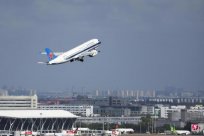
The Hong Kong government has actively helped the people of the foundation in recent years, but the latest report from the non -governmental organization of Ledu shows that the gap between the local rich and the poor has further expanded in the first quarter of this year.580,000 people.
A report on Wednesday (October 2), a report on Wednesday (October 2), stated in a report on Hong Kong's poverty. The overall poverty rate in Hong Kong in the first quarter of this year reached 20.2%, and more than 1.39 million people were in poverty.
According to the report, one person's monthly income of HK $ 5,000 (S $ 830) is poverty. The poor line of the two residents is HK $ 11,300, the three are HK $ 19,500, the four are HK $ 25,200, and the five are 2 for 2.HK $ 5,800, six or more are HK $ 26,000.
TheReport also pointed out that in the first quarter of this year, Hong Kong's poorest 10 % residents had a median monthly income of HK $ 1,600, which fell more than 50 % compared with the epidemic.On the contrary, the richest 10 % of the households, the median monthly income of the family reached HK $ 13,100, an increase of nearly 10 % from 2019.The gap between the two has expanded from 34.3 times in 2019 to 81.9 times in the first quarter of this year.
In addition, the number of poor households in Hong Kong increased to 610,000 in the first quarter of this year, accounting for more than 20 % of the overall residents.There are as many as 260,000 households and double -old residents who live alone, an increase of about 50 % compared with 2019.The number of poor elderly people 65 or above exceeds 580,000, an increase of 42.9%over 2019.
Le Shi believes that the above data reflects that the gap between the rich and the poor in Hong Kong is large, and the problem of poor poverty is becoming increasingly serious.The agency called on the Hong Kong Government to re -consider the establishment of poverty lines in order to grasp the changes in comprehensive poverty and trend, and to establish a strategy of precision poverty alleviation on this basis.
Le Shi also suggested that the Hong Kong Government creates more opportunities for the elderly to invest in the labor market, including providing more flexible working hours and suitable types of work.Language skills work opportunities, such as accompaniment, school bus school child care, etc.
Huang Shuohong, the director of the project of Hong Kong, Macao and Taiwan, said: "Most of the elderly people in Hong Kong have no work income, because Hong Kong's MPF has only begun in 2000. Generally speaking, they are not many accumulated MPFs.They may really have little left, and there is no savings. Some children do not have children. Even if they have children, it is difficult to provide economic support in today's situation, so they are generally difficult to live.
Cai Sixing, a lecturer of the General Scholarship of the Chinese University of Hong Kong, pointed out in an interview with Lianhe Morning Post that in recent years, Hong Kong's economic development has lack of industry that can make the common people's common prosperity. To a certain extentThe financial and real estate industries are dominated by these industries. It is easy to cause the poor and the richer to the rich.
Cai Sixing said that due to the single industrial development of Hong Kong, it only relies on the wealth transfer of the Hong Kong government and the support of social welfare agencies to solve social poverty.Essence
He believes that Hong Kong needs to continue to break the curse of small government markets, as well as frames that cannot cooperate with public and private cooperation."For example, when the government provides public houses, it can also consider providing science and technology innovation, cultural innovation, and social innovation incubation bases in the community, so that the low class can gain happiness in terms of residence, and can also get out of poverty through entrepreneurship or secondary cause."



